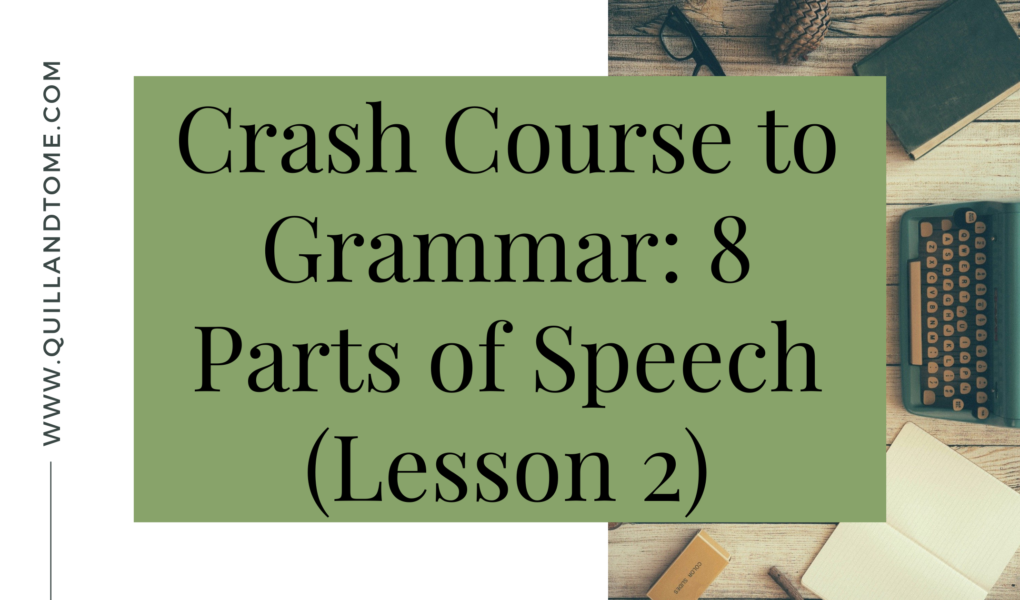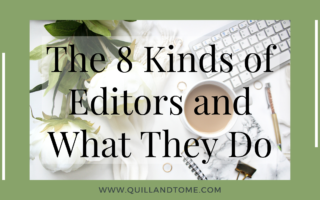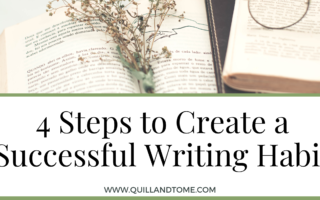Verbs and Adjectives
Last week we talked about nouns and pronouns, which are the basic building blocks of language. This week, we will be talking about verbs and adjectives, which enable us to go from just naming things to creating complete sentences. There are several different types of verbs and adjectives that each have their own function and position in a sentence.
Verbs
A verb is a word that show action or state of being. There are three categories of verbs.
Action Verbs
An action verb is a main verb that shows action and stands alone
Ex. I opened the book.
Linking Verbs
A linking verb is a main verb that shows a state of being and stands alone
Ex. I feel strong.
True Linking Verbs include all forms of:
Be, Become, Seem
Other linking verbs:
Appear, Feel, Grow, Look, Remain, Smell, Sound, Stay, Taste, Turn, Get, Prove
*Some linking verbs can also function as action verbs. To test this, substitute the verb with the appropriate form of a true linking verb. If the sentence still makes sense, it is a linking verb.
Helping Verbs
A helping verb is a verb that cannot stand alone and must be paired with an action or linking verb
Ex. I will be a doctor.
I am writing a book.
A verb phrase occurs when you have a helping verb and main verb together in a sentence
Ex. I have read that book
Helping Verb: have
Main Verb: read
Verb Phrase: have read
There are 24 Helping Verbs (a.k.a. Auxiliary Verbs):
Be, Been, Should, Can, Am, Being, Would, Will, Is, Have, May, Do, Are, Has, Might, Did, Was, Had, Must, Does, Were, Could, Shall, Having
*These verbs are often paired with the word not, but not is never a part of the verb phrase
Some helping verbs can also act as a main verb.
Ex. Main Verb- I have two kids.
Helping Verb- I have read that book.
Main Verbs
There are four kinds of main verbs.
Intransitive Complete: an action verb that does not have a direct object receiving the action
Ex. Cows eat.
Dogs bark.
Transitive Active: an action verb that always has a direct object receiving the action
Ex. Cows eat grass.
Dogs bark at cats.
Transitive Passive: an action verb where the receiver of the action is the subject. Written in passive voice.
Ex. The grass was eaten.
The cats were barked at by the dogs.
Intransitive Linking: a state of being verb linking the subject of the sentence with a predicate noun or predicate adjective
Predicate noun- noun that renames the subject
Predicate adjective- adjectives that describe the subject
Hint: think of the linking verb as an equal sign
Ex. I am a writer
I = writer
The sauce is sweet
sauce=sweet
Verbs Have Moods
The mood of the verb tells how the person who is doing the action feels or the way in which a sentence is expressed.
Indicative Verbs: Used when stating a fact
Ex. Past: I walked to the store
Present: I walk to the store.
Future: I will walk to the store.
Imperative Verbs: Used when telling someone what to do
Ex. Go away!
Get in the car!
Interrogative Verbs: Used when asking a question
Ex. Will you help me fix my car?
Can you see the sign?
Conditional Verbs: Used to express a hypothetical or uncertain event that is contingent upon the occurrence of another event
Ex. If you eat the old leftovers, you might get sick.
She would look more professional, if she wore a suit.
Subjunctive Verbs: Used when describing thoughts or wishes that might not come true
Ex. I wish I had a million dollars.
I suggest you call them back.
Adjectives
An adjective is a word that describes a noun. It can describe the quality, quantity, or state of being of that noun. There are three forms of adjectives.
Absolute Adjectives
An adjective that is absolute or not capable of having variations
Ex. Impossible, Entire, Minor, Unique, Whole, Final, Dead
A smart person
A pretty present
An intelligent challenge
Comparative Adjectives
An adjective that makes a comparison between two or more things
One syllable: add suffix -er
Two syllables ending in -y, replace with -ier
Multiple syllables: add word more
Ex. A smarter person
A prettier person
A more intelligent challenge
Superlative Adjectives
An adjective that indicates the highest degree of the noun
One syllable: add suffix -est
Two syllables ending in -y, replace with -iest
Multiple syllables: add word most
*Always use definite article the, since you are talking about a specific thing
Ex. The smartest person
The prettiest present
The most intelligent challenge
CHECK OUT THE WRITER’S PLANNER BY QUILL AND TOME!
Get the planner and organize your life and your writing!
What you can find inside:
- Plenty of writing space in a vertical layout
- Undated weekly and monthly pages you can start using any day of the year
- Reading and Writing Trackers
- Writing Tips
- and so much more!
Coordinate Adjectives
Coordinating Adjectives are multiple adjectives that describe the same noun and should be separated by a comma or the word and.
Ex. We are going to have a long, hot summer.
She loved her hyper and curious kids.
Having two adjectives next to each other does not mean they are coordinating. Sometimes a noun and adjective will combine to form a single unit. In this case, you do not separate them with a comma or the word and. To test this, insert the word and between the adjectives, and if it still makes sense, they are coordinating. Another way to test this is to switch the two adjectives to see if the phrase still makes sense.
Ex. It will be a very long summer.
Wrong: It will be a very and long summer.
Wrong: It will be a long, very summer.
Neither variation works, so you know that the adjectives are not coordinating. Long and Summer have combined to form the single unit long summer, and the word very is the adjective describing the long summer.
Ex. He bought the beautiful gold ring.
Wrong: He bought the beautiful and gold ring.
Wrong: He bought the gold, beautiful ring.
Neither variation works, so you know that the adjectives are not coordinating. Gold and ring have combined to form the single unit gold ring, and the word beautiful is the adjective describing the gold ring.
Some Words Can Be Both
Depending on the placement of the word, it can function as a noun or an adjective.
Ex. Adjective: The homeless man sat on the bench.
Noun: She set up a fundraiser for the homeless.
With this guide, you can now create complete sentences. However, there are still four more parts of speech to cover! So tune in for our next installment of our Crash Course to Grammar: The 8 Parts of Speech – Lesson 3 Adverbs and Prepositions.
Over To You
Hopefully, you found this helpful.
If you enjoyed this content and are interested in fitting writing into your daily life, DOWNLOAD THE FREE WORKBOOK! Read our monthly newsletter, full of valuable writing advice and be the first to know when we release a new product or book.







